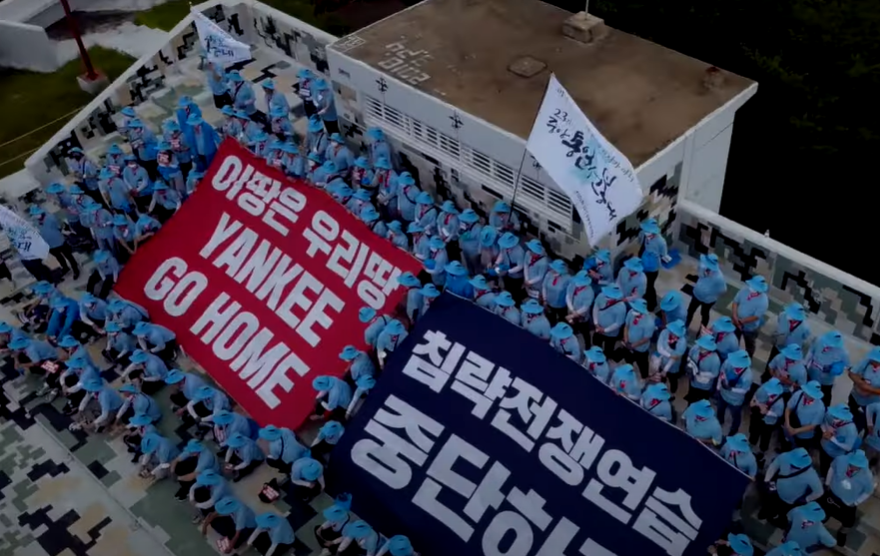
Man I hate this dude
The history of the Middle East since 1948 shows Israel constantly striving for peace, only to be rebuffed time and again by the Arabs.
-- Antony J. Blinken, "Lebanon and the Facts", 1982
Israel is not, has never been, nor will ever be the irreproachable, perfectly moral state some of its supporters would like to see. Israelis are, after all, only human. Still, one pedestal the Jewish state can stand on--and stand on alone in the Middle East--is that of a democracy. Yes, there are tragic excesses in the occupied territories. True, the invasion of Lebanon claimed many innocent lives. The fact remains, though, that Israelis question themselves and their government openly and honestly. Eventually, as in other democracies, those responsible for wrongdoing are held accountable.
-- Antony J. Blinken, "Israel's Saving Grace", 1982
The summer of 1982 may be remembered in history as the time Israel passed from adolescence to adulthood. The illusions of a child are left behind. But the Jewish state remains special, an oasis in a desert. Its citizens have built a working democracy from scratch in a region that has no others. Israelis must treasure that democracy, protect it with all their will. For if they don't, the growing pains that are Lebanon, Shatila and Sabra, the repression of Arabs and the feud between Ashkenazim and Sephardim could turn into a plague.
-- Antony J. Blinken, "The Danger Within", 1983
I recommend Geopolitical Economy Report.
Edit: Just remembered there is also People's Dispatch, whose articles I sometimes read, but they also have a YouTube channel. I haven't really watched their videos though. Maybe someone else can comment further about it.

YouTube Video
Click to view this content.
Lyrics
It isn't nice to block the doorway,
It isn't nice to go to jail,
There are nicer ways to do it,
But the nice ways always fail.
It isn't nice, it isn't nice,
You told us once, you told us twice,
But if that is Freedom's price,
We don't mind.
It isn't nice to carry banners
Or to sit in on the floor,
Or to shout our cry of Freedom
At the hotel and the store.
It isn't nice, it isn't nice,
You told us once, you told us twice,
But if that is Freedom's price,
We don't mind.
We have tried negotiations
And the three-man picket line,
Mr. Charlie didn't see us
And he might as well be blind.
Now our new ways aren't nice
When we deal with men of ice,
But if that is Freedom's price,
We don't mind.
How about those years of lynchings
And the shot in Evers' back?
Did you say it wasn't proper,
Did you stand out on the track?
You were quiet just like mice,
Now you say we aren't nice,
So if that is Freedom's price,
We don't mind.
It isn't nice to block the doorway,
It isn't nice to go to jail,
There are nicer ways to do it
But the nice ways always fail.
It isn't nice, it isn't nice,
Well thanks for your advice,
But if that is Freedom's price,
We don't mind, we don't mind! ___
Here's a documentary about it that leaves out most of the blood and gore that you could easily find if you looked: Donbass (2016). You will see a bit of people being burned to death in this documentary and some other injuries but not to the extent you could find in other videos of the time.
Here's a scene of the burning of the trade union building in 2014. Russian speakers were protesting regarding the repeal of a law which protected Russian as a minority language (or as the Ukrainian former soldier in the video states, they were "contesting a ban on the Russian language in Ukraine.") The protestors hid in the trade union building when Ukrainian right wing nationalists showed up. Eventually, the Ukrainian nationalists set fire to the building and many of the protesters burned to death, with those who jumped out of the windows getting beaten to death by the Ukrainian nationalists. (See also: "Burnt Alive in Odessa").
If you can stomach seeing bodies blown up in the streets, limbs removed, dead babies, and footage of people dying, there are other documentaries around which show it. It's not hard to find footage like this from 2014 onwards. E.g., Result of a 2014 shelling by Ukrainian military (CW: Numerous dead bodies); More aftermath of a shelling (CW: Extremely graphic, numerous mutilated bodies, and footage of a person dying).
You can make up your own mind about the conflict's particulars as you learn about it, but it's a mistake to ignore events happening before 2022 or treat them as insignificant.
I'd be really interested in reading that
Published by the Foreign Languages Publishing House in Pyongyang. A very good and informative book.Long live the DPRK!
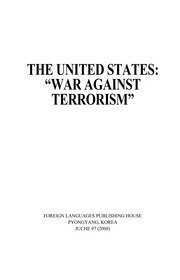
DPRK, along with Iraq and Iran, was declared part of the "Axis of Evil" in 2002 by the US's George W. Bush administration. This 2008 book recounts and analyzes the "war on terror" and the U.S. bid for unipolar hegemony up to the time of its writing. It provides details about that time period, as well as other historical background information, delivered with DPRK's anti-imperialist perspective. Overall, I think it's an interesting and relatively quick read (81 pages) covering mainly the 1990s-mid 2000s and tracing the emergence of multipolarity and the US's attempt to stop that emergence around the world, with attention given specifically to its attempts to gain control over countries in which oil and natural gas pipelines run through in order to circumvent Russia and "seize the lifeline of the European economy."
Beginning with the fall of the Soviet Union and thus the ending of NATO's reason for existence, it follows the US's unpopular attempts during the 1990's to manufacture a new world enemy, until the 9/11 attack created its perfect excuse to permanently wage war on any region unfavorable to US interests, with the main conclusion of the book being that although this project by the US is intended to drag on indefinitely, it will eventually end in failure due to its unilateralism and infringement upon sovereignty of nation-states, "illogicality combined with a childish attempt at division of the international political forces, and anachronism."
Below I will share some excerpts from the book.
several excerpts
> [With the collapse of the Soviet Union] NATO forfeited its raison d’etre, and the United States was deprived of any justification for its pursuit of world supremacy. The stick which the US had been wielding on the excuse of “protecting the free world” from the “threat” of the Soviet Union and communism, lost its authority, and the focal point that had supported the pyramid of the US-led alliance diminished considerably. The Iron Curtain was lifted, widely opening the sphere of influence under the former Soviet Union, a much coveted region. The United States, however, lacked a specific justification to fill the “power vacuum” until September 11, 2001.
> In order to reverse the world trend towards multipolarization and allay the spiraling anti-Americanism across the world, the United States needed an event by which it could mislead opinion at home and abroad as in the days of the Cold War and bring about a radical change in the world political sphere.
> The objective of the war [in Afghanistan] was not the capture of bin Laden or retaliation for terrorist attacks, but to exert a long-term influence on Afghanistan to secure a foothold in Central Asia, a region with abundant strategic resources: First, to secure a strategic foothold for containing Russia and China and encircling Iran; second, to secure military means for winning firm control over the two major oil regions in the world-the Caspian Sea area and the Middle East; and third, to secure a centre of operations and advanced base needed for expanding and prolonging the “war against terrorism.”
> The ulterior motives [of the Iraq war] were, first, to overthrow the Saddam regime, which had openly held up the anti-US banner in the Arab world for over ten years, thus realigning the political force in the Middle East in its favour, second, to win exclusive control over the strategic region with energy resources and the world oil market, and third, to create an environment favourable for Bush’s second term of office and the Republicans’ prolonged stay in power.
> Military blockades, a link in the whole chain of the “war against terrorism,” are effected through the Proliferation Security Initiative, which Bush proposed in Krakow, Poland, in late May 2003 and explained in detail at the G-8 summit held in Evian-les-Baines, France. It aims at enforcing economic blockades on the countries that possess, develop and export weapons of mass destruction and searches of their vessels at sea, and further building an international cooperation system for preemptive strike. The targets are Korea and Iran, two of the three countries Bush claimed to be constituting an “Axis of Evil.”
> The countries and regions where the flames of the “war against terrorism” are raging are, without exception, those that have oil resources or where oil pipelines pass through. The Afghan war was directly related to oil and its transport in the Caspian, the third-biggest oil region in the world. Samuel R. Berger, national security adviser to former President Bill Clinton, confessed that America’s vital interests in Central Asia, including Afghanistan, are to safely transport oil and natural gas at any cost.
> The existing pipelines in Central Asia, from which the United States imports oil, pass through Russia. So the United States had to find another transport channel for Caspian oil to avoid Russia’s monopoly of the pipelines. The southward channel passing through Iran was ideal, but America’s relations with the country were a stumbling block.
> Iraq has oil deposits of 112 billion barrels, the next-biggest oilfield after that of Saudi Arabia, and the cost of drilling one barrel was 50 cents before the war, the cheapest in the world. If the United States brought this oil country under its control, it would prove favourable for it to relieve its burden of oil imports, which was estimated to spiral 90 percent till 2020. Moreover, this would deal a telling blow to OPEC, restrict the influence of Russia and other oil suppliers, and seize the lifeline of the European economy.
> Entering 2002, the United States took the lead in inducing early membership for Romania and Bulgaria, countries that have ports on the Black Sea, of NATO, and intensified its military advance into Georgia and other Transcaucasian countries. These actions promoted a plan for laying an oil pipeline from the Caspian Sea through Turkey, by-passing Russia.
> Availing themselves of the “war against terrorism,” the US military-industry complexes, which had been eclipsed after the Gulf War, bounced back. US munitions enterprises, including the four major corporations-Lockheed Martin, Boeing, Raytheon and TRW-are enjoying a wartime boom.
> After 9/11 the United States did its best to involve as many countries as possible in its own “war against terrorism.” [...] On September 18, 2001, Secretary of Commerce Don Evans warned that such sanctions as blocking access to the American market and reconsidering food assistance would be imposed against those countries that were unwilling to cooperate with the United States in the campaign. This led many countries to donate troops and help with logistics in the “war against terrorism,” and to allow US-led forces to pass over their territorial airspace or use bases in their territories during the wars in Afghanistan and Iraq, or promise cooperation or express understanding-overt or covert cooperation with the United States.
> Bush divided the world into those on the US side and those on the “terrorist” side, through childish logic. Labelling the countries that pursue anti-US independence, that are not obedient to it and that are situated in regions of strategic importance as siding with the “enemy,” he resorted to unprecedented pressure and military blackmail. If the United States could find a “reasonable excuse,” it immediately and unhesitatingly committed military aggression.
> The Taliban regime in Afghanistan and the Saddam Hussein government of Iraq became miserable victims of the “war against terrorism.” The next targets of the “war,” which is continuing in line with Bush’s “ripples” strategy, are the DPRK, Iran and Cuba. These countries, though small, stick to the principle of independence, and reject the American view on values. [...] The US attempt to crush the DPRK and realize domination over the whole Korean peninsula constitutes the core of its policy towards the DPRK and the key to its building of a foundation on which to achieve world hegemony.
> The Songun politics the DPRK now pursues acts as a deterrent to the “war against terrorism” and safeguards peace in Northeast Asia as well as on the Korean peninsula.
> To cope with a possible military strike by the United States, Cuba put all its people under arms and fortified the whole country. In December 2004, four million civilians joined the soldiers and reserve forces in the last stage of Bastion 2004, a military exercise aimed at perfecting the principles of “all-people war” against possible US aggression. Cuba’s firm anti-US stand and strong countermeasures will inevitably foil any US attempt to stifle it.
> If the United States continues the “war against terrorism” with the logic that any country that is not on its side is on the enemy’s side, it will inevitably meet self-destruction.
> Bush submitted the Nuclear Posture Review to Congress in January 2002. Outlining the orientation of the nuclear policy the United States should pursue in the forthcoming five to ten years in the report. Bush insisted on changing the strategy of nuclear deterrence. In the part not made public, the report pinpointed the DPRK, along with China, Russia, Iraq, Iran, Libya and Syria, as targets of nuclear attack, and further expanded the scope and methods of the use of nuclear weapons. [...] The document also advocated nuclear preemptive strike against nonnuclear states by defining five nonnuclear states as targets of nuclear attack.
> In the United States some advocate a theory of “cultural conflict,” which alleges that Islamic culture is fundamentally contradictory to Christian culture. Neocons view that 9/11 proved this conflict and the only way to eliminate it is to reform the entire Islamic world and lead it to Western-style democracy.
> Since 9/11 the United States has claimed that, as the “failed states,” serving as a source of or shelter for terrorism, pose a great threat to global security, the countries that sponsor international terrorism or allow the free activities of terrorists in their territories should also be viewed as “failed states.” Alleging that these countries are deprived of their raison d’etre, it insists that the international community, or some countries, or one country, has a right to take action with regard to such countries, and further to change their regimes to root out terrorism, which threatens the international community. The concept of “bankrupt states” (“rogue states” and “Axis of Evil” included) much touted by the Bush administration serves, in practice, US military intervention in other countries.
> The “war against terrorism” pursued by the Bush administration will eventually end in failure due to its unilateralism that infringes upon the sovereignty of nation-states, illogicality combined with a childish attempt at division of the international political forces, and anachronism.
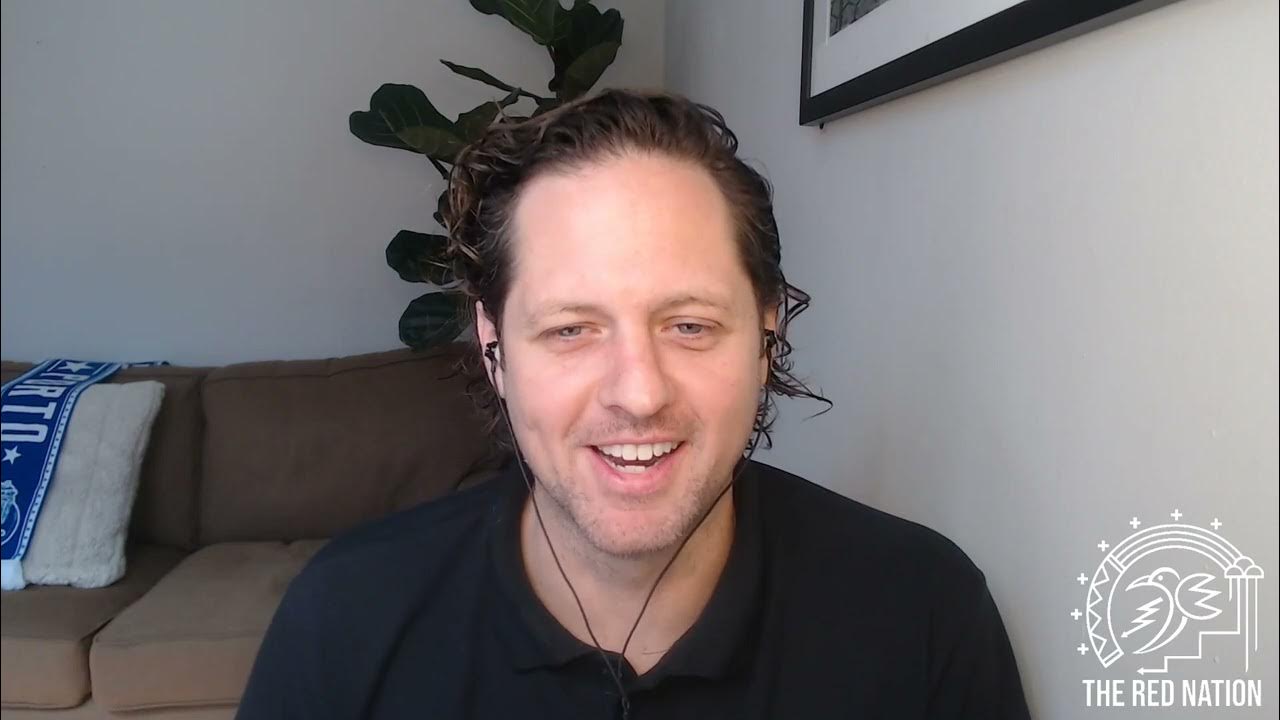
YouTube Video
Click to view this content.
> From 2010 to 2020, the world experienced mass protests. Yet, those protests have not brought about more democracy and freedom. Why did these protests lead to the opposite of what they supposedly demanded? In this episode, journalist Vincent Bevins joins the podcast to discuss his latest book, If We Burn: The Mass Protest Decade and the Missing Revolution (2023).
I haven't read the book, but in this interview they cover the role of mass media in how it portrays and effects street protests, covering examples in Brazil, also touching on the Arab Spring, Euromaidan, and Hong Kong, discussing what the mass media selectively covers and leaves out, how attracting media attention has altered what kind of protests occur, and how decentralized movements without clear demands, a structure of decision making, or plans for how to exercise power are subjected to being co-opted.
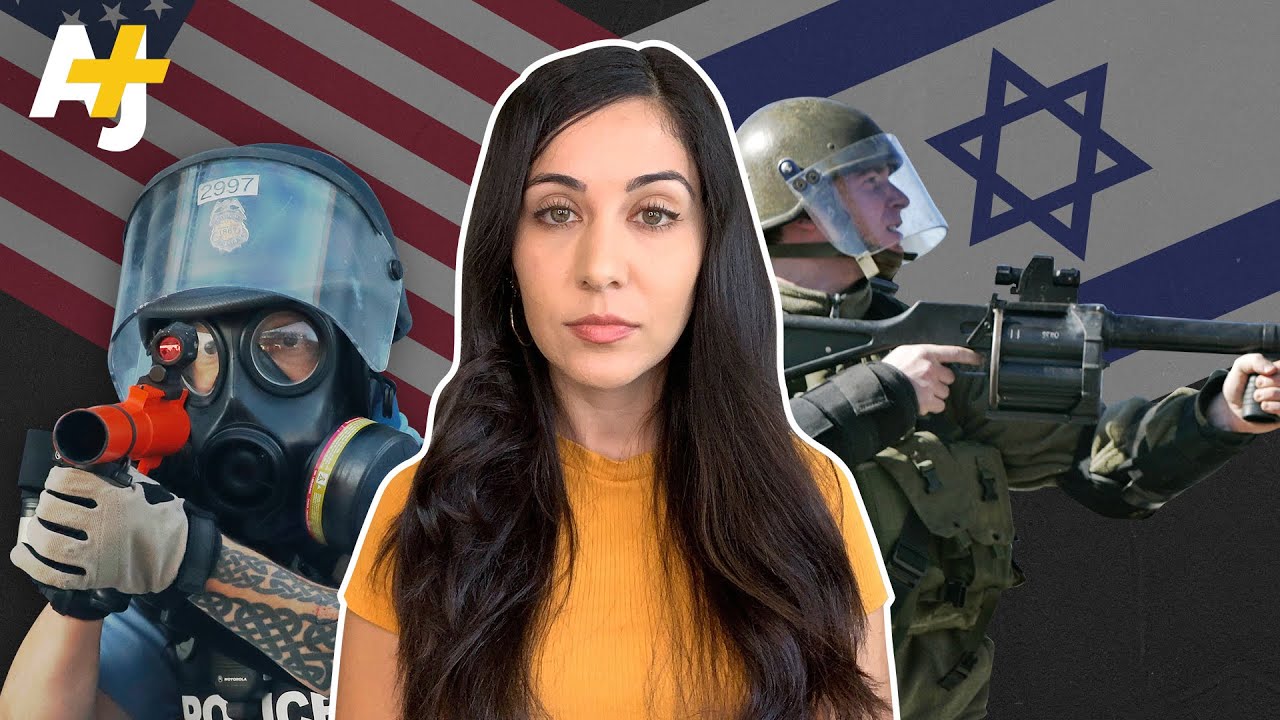
YouTube Video
Click to view this content.
Video from 2020
As the United Nation’s agency responsible for public health, the World Health Organization (WHO) strongly condemns Israel's repeated orders for the evacuation of 22 hospitals treating more than 2000 inpatients in northern Gaza. The forced evacuation of patients and health workers will further worsen...

>As the United Nation’s agency responsible for public health, the World Health Organization (WHO) strongly condemns Israel's repeated orders for the evacuation of 22 hospitals treating more than 2000 inpatients in northern Gaza. The forced evacuation of patients and health workers will further worsen the current humanitarian and public health catastrophe. > >The lives of many critically ill and fragile patients hang in the balance: those in intensive care or who rely on life support; patients undergoing hemodialysis; newborns in incubators; women with complications of pregnancy, and others all face imminent deterioration of their condition or death if they are forced to move and are cut off from life-saving medical attention while being evacuated. > >Health facilities in northern Gaza continue to receive an influx of injured patients and are struggling to operate beyond maximum capacity. Some patients are being treated in corridors and outdoors in surrounding streets due to a lack of hospital beds. > >Forcing more than 2000 patients to relocate to southern Gaza, where health facilities are already running at maximum capacity and unable to absorb a dramatic rise in the number of patients, could be tantamount to a death sentence. > >Hospital directors and health workers are now facing an agonizing choice: abandon critically ill patients amid a bombing campaign, put their own lives at risk while remaining on site to treat patients, or endanger their patients’ lives while attempting to transport them to facilities that have no capacity to receive them. Overwhelmingly, caregivers have chosen to stay behind, and honor their oaths as health professionals to “do no harm,” rather than risk moving their critically ill patients during evacuations. Health workers should never have to make such impossible choices. > >Additionally, tens of thousands of displaced people in northern Gaza are seeking refuge in open spaces in or around hospitals, treating them as havens from violence as well as to protect the facilities from potential attacks. Their lives, too, are at risk when health facilities are bombed. > >There are verified reports of deaths of health care workers and destruction of health facilities, which denies civilians the basic human right of life-saving health care and is prohibited under International Humanitarian Law. > >WHO calls for Israel to immediately reverse evacuation orders to hospitals in northern Gaza, and calls for the protection of health facilities, health workers, patients, and civilians. WHO also reiterates its calls for the immediate and safe delivery of medical supplies, fuel, clean water, food, and other humanitarian aid into Gaza through the Rafah crossing, where life-saving assistance – including WHO health supplies that arrived earlier today – is currently awaiting entry.
Excerpts:
> Since 7 October 2023, more than 1,900 Palestinians have been killed, including at least 600 children, more than 7,600 injured, and over 423,000 people have been displaced as a result of the Israeli strikes. This fate befell a population which has already experienced five major wars since 2008 in the context of an unlawful blockade imposed by Israel since 2007, which Albanese said has been widely condemned by the international community as collective punishment.
>On 12 October, Israeli forces issued an order for 1.1 million Palestinians in north Gaza to move to the south within 24 hours, amidst ongoing airstrikes. The next day, Israeli forces reportedly began to enter Gaza in order to “clear” the area. Palestinians have no safe zone anywhere in Gaza, with Israel having imposed a “complete siege” on the tiny enclave, with water, food, fuel and electricity unlawfully cut off. Rafah, the only border crossing that remained partially open to the Gaza strip, was closed after damage caused by Israeli airstrikes.
>“There is a grave danger that what we are witnessing may be a repeat of the 1948 Nakba, and the 1967 Naksa, yet on a larger scale. The international community must do everything to stop this from happening again,” the UN expert said. She noted that Israeli public officials have openly advocated for another Nakba, the term for the events of 1947-1949 when over 750,000 Palestinians were expelled from their homes and lands during the hostilities that led to the establishment of the State of Israel. The Naksa, which led to Israel’s occupation of the West Bank and the Gaza Strip in 1967, displaced 350,000 Palestinians.
cross-posted from: https://lemmygrad.ml/post/2372708
> >AMMAN/EAST JERUSALEM, > > > >“As Gaza remains under heavy bombardment with Israel tightening its grip over the overpopulated Strip, it is left to the UN and humanitarians to protect civilians. > > > >“The call from Israeli Forces to move more than 1 million civilians living in northern Gaza within 24 hours is horrendous. This will only lead to unprecedented levels of misery and further push people in Gaza into the abyss. > > > >“Since 7 October, over 423,000 people have already been displaced. Of them, more than 270,000 have taken refuge in UNRWA shelters, where basic food, medicine and support is provided to retain dignity and a glimmer of hope. > > > >“The scale and speed of the unfolding humanitarian crisis is bone-chilling. Gaza is fast becoming a hell hole and is on the brink of collapse. > > > >“There is no exception, all parties must uphold the laws of war; humanitarian assistance must be provided at all times to civilians. > > > >“In Gaza, more than 2 million people are caught up in this conflict. UNRWA is struggling to fulfil its mandate. > > > >“I urge all parties and those with influence over them to put an end to this tragedy and provide immediate and unconditional humanitarian access and protection to the civilians, among them far too many women and children. > > > >“The time for humanity to prevail is now.” > > > >ENDs -
All this week I keep thinking about/looking up Haitian revolution images too...
As a former senior economist of the IMF once said:
Today I resigned from the staff of the International Monetary Fund after over twelve years, and after 1000 days of official Fund work in the field, hawking your medicine and your bag of tricks to governments and to peoples in Latin America and the Caribbean and Africa. To me resignation is a priceless liberation, for with it I have taken the first big step to that place where I may hope to wash my hands of what in my mind's eye is the blood of millions of poor and starving peoples. Mr. Camdessus, the blood is so much, you know, it runs in rivers. It dries up too; it cakes all over me; sometimes I feel that there is not enough soap in the whole world to cleanse me from the things that I did do in your name and in the names of your predecessors, and under your official seal.
You know, when all the evidence is in, there are two types of questions that you and me and others like us will have to answer. The first is this: - will the world be content merely to brand our institution as among the most insidious enemies of humankind? Will our fellow men condemn us thus and let the matter rest? Or will the heirs of those whom we have dismembered in our own peculiar Holocaust clamor for another Nuremberg?
(Davison Budhoo's IMF resignation letter. PDF, archive.org)
more quotes
As from today I refuse to accept the Fund-imposed censorship on our activities in the Third World. I have also stopped obeying your directive that reports and memoranda and other printed matter that document these activities be regarded as unexceptionally confidential and "hush-hush".
In guilt and self-realization of my own worthlessness as a human being, what I would like to do most of all is to so propel myself that I can get the man-in-the- street of North and South and East and West and First and Second and Third and Fourth and All Other Worlds to take an interest in what is happening to his single planet, his single habitat, because our institution was allowed to evolve in a particular way in late twentieth- century international society, and allowed to become the supra- national authority that controls the day-to- day lives of hundreds of millions of people everywhere. More specifically, I would like to enlighten public opinion about our role and our operations in our member countries of the Third World.
I can get people to begin to comprehend the universality and the depth of our perversion - I would have achieved something rare and precious for the starving and dispossessed two-thirds of mankind from whose ranks I come, and for whose cause I must now fight.
Our policy package for Trinidad and Tobago-i.e. the conditionality that we are demanding for any Fund program [...] can be shown, even in a half-objective analysis, to be self-defeating and unworkable. That policy package can never serve, under any set of circumstances, the cause of financial balance and economic growth. Rather, what, in effect, we are asking the Government of Trinidad and Tobago to do is to self-destruct itself and unleash unstoppable economic and social chaos.
We manipulated, blatantly and systematically, certain key statistical indices so as to put ourselves in a position where we could make very false pronouncements about economic and financial performance of that country. In doing so, we created a situation whereby the country was repeatedly denied access to international commercial and official sources of financing that otherwise would have been readily available. Our deliberate blocking of an economic lifeline to the country through subterfuge served to accentuate tremendously the internal and external financial imbalances within the economy
As the country continues to resist our Deadliest Medicine that would put it in a position to enter into a formal stand-by arrangement with us, we continue to resort to statistical malpractices and unabashed misinformation so as to bring it to heel. Among several misdeeds, we have influenced the World Bank, apparently against the better judgement of its own mission staff, to come out in support of our trumped-up policies and stances for the country
What we have done and are doing in Trinidad and Tobago is being repeated in scores of countries around the world, particularly in Latin America and the Caribbean and Africa. Sometimes we operate with greater restraint, sometimes with less, but the process and the result are always the same: a standard, pompous recital of doctrinaire Fund "advice" given uncompromisingly and often contemptuously and in utter disregard to local conditions and concerns and susceptibilities. It is the norm now rather than the exception, that when our "one-for-all and all-for-one" Fund cap doesn't fit the head for which it is intended, we cut and shave and mangle the head so as to give the semblance of a fit. Maybe we bust up the head too much in Trinidad and Tobago, but have no illusions that the way we operate through- out the world - the narrow and irrelevant epistemology underlying our work, the airs and affectations and blases and illusions of superiority of our staff vis-Á-vis government officials and politicians in the developing world, our outrageous salaries and perks and diplomatic immunities and multiple "entitlements", the ill-gotten, inadvertent power that we revel in wielding over prostrate governments and peoples- can only serve to accentuate world tensions, expand even further the already bulging ranks of the poverty-striken and destitute of the South, and stunt, worldwide, the human soul, and the human capacity for caring and upholding norms of justice and fairplay.
In America there are signs posted all over residential zones reminding citizens that they are being spied on by their neighbors who will immediately report all "suspicious persons and activities" to the authorities 😱 Some signs even mention the people have been "trained" to report/spy on each other's family members 😢


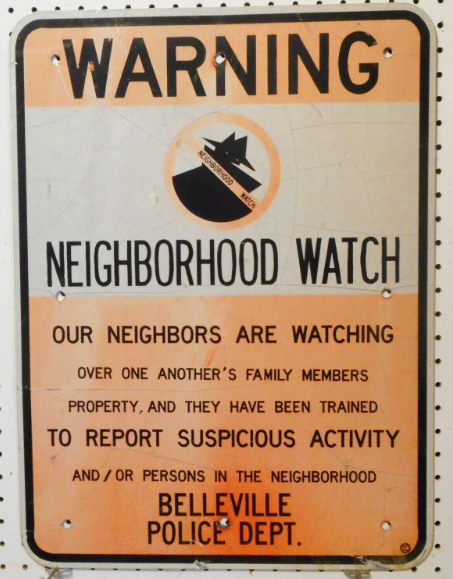
“We have many interesting projects,” Putin promised, naming as one example the plan to develop Russian railroad connectivity through North Korea. (Source)
Really interested to see if this is pursued.
This is an old article (2018) but it outlines the kinds of projects that have been discussed before concerning Russia-DPRK-ROK:
One such project could be a railway that will be able deliver goods from Russia to South Korea through North Korea. "Once the Trans-Korean Main Line is built, it may be connected to the Trans-Siberian Railway. In this case, it will be possible to deliver goods from South Korea to Europe, which would be economically beneficial not only to South and North Korea but to Russia as well," Moon Jae-in said in an interview with Russian media ahead of his state visit to Moscow.
A gas pipeline coming from Russia to North Korea to be extended to the South is another possibility, he said. "We can also build a gas pipeline via North Korea, so that not only South Korea will receive Russian gas but we will also be able to deliver it to Japan," the South Korean president said.
The project to unite the Korean Peninsula with a gas pipeline has been discussed for a long time, but official talks started in 2011. The negotiations were frozen after relations between Seoul and Pyongyang deteriorated. Last week, Russian energy major Gazprom announced it resumed talks with Seoul over the construction of a gas pipeline connecting Russia with North and South Korea.
The countries could also connect their electricity grids, Moon Jae-in said. "We can also establish a powerline that would allow us to receive electricity from Russia. It could also be delivered not only to South and North Korea but also to Japan.”
I don't recall the exact details as I believe it was the usual UN demands about DPRK's missile launches, but basically China went along with a round of security council sanctions adopted in 2017, which meant that petroleum exports become more restricted and thousands of people from DPRK who were working in China had to go home and a bunch of joint ventures were forced to shut down as well. However, in 2022, China and Russia vetoed a new round of US-sponsored UN sanctions on DPRK, and recommended lifting some of the earlier sanctions, as they felt the US had failed to engage in its end of diplomacy with DPRK, and therefore the earlier sanctions should be reduced and no further ones should be imposed.
Yes, the US is purposely starving the world.
Yep. I doubt you'll care to read the following but I'm putting it here for others to see.
The United States is the world leader in imposing economic sanctions and supports sanctions regimes affecting nearly 200 million people. ... Targeted countries experience economic contractions and, in many cases, are unable to import sufficient essential goods, including essential medicines, medical equipment, infrastructure necessary for clean water and for health care, and food. ... While on paper most sanctions have some humanitarian exemptions for food, necessary medicines and medical supplies, in practice these exemptions are not sufficient to ensure access to these goods within the targeted country. (Center for Economic and Policy Research)
It's well known that sanctions are ineffective for pressuring governments, but very effective at waging siege warfare by starving and killing ordinary citizens by disease and infrastructural failures. Continuing to use sanctions in this way and to this extent, when this is well known, is definitely "purposely starving the world". An independent expert appointed by the Office of the High Commissioner for Human Rights said in 2019 that US sanctions violate human rights and international code of conduct and can lead to starvation. Why does the US continue to be the world leader in imposing sanctions, increasing its use of sanctions by 933% over the last 20 years, when this is well known? It's because they know the effect, and they're doing it on purpose.
We can also look at some US internal memorandums from before it was more politically incorrect to talk about starving people in other countries. In 1960, U.S. officials wrote that creating "disenchantment and disaffection based on economic dissatisfaction and hardship" through denying money and supplies to Cuba would be a method they should pursue in order to "bring about hunger, desperation and overthrow of government" in Cuba.
In other countries, we see a pattern of US officials and US-backed institutions purposely denying aid and loans to governments they don't approve of, and then suddenly approving aid and opening up loans when a coup brings a leader they're happy with into power. When Ghana was requesting aid under an administration that the West's bourgeoisie didn't like, U.S. officials said this: "We and other Western countries (including France) have been helping to set up the situation by ignoring Nkrumah’s pleas for economic aid. The new OCAM (Francophone) group’s refusal to attend any OAU meeting in Accra (because of Nkrumah’s plotting) will further isolate him. All in all, looks good." The "situation" they were helping to set up was a coup they knew was going to happen. After a US-friendly coup took place, suddenly it was time to give the "almost pathetically pro-Western" government a gift of "few thousand tons of surplus wheat or rice", knowing that giving little gifts like this "whets their appetites" for further collaboration with the US. You will find the same song and dance in numerous other countries, Chile being a well-documented example, if you simply look for it.
The US imposes starvation and depravation of other countries on purpose, using it as an economic wrecking ball, then pats itself on the back for giving "aid" to the countries which have been hollowed out by such tactics.
The loans which magically become available to countries that meet the US approval standards are not so pretty either, as a former IMF senior economist said, he may only hope "to wash my hands of what in my mind's eye is the blood of millions of poor and starving peoples", there not being "enough soap in the world" to wash away what has been done to the global south through the calculated fraud of the IMF, whose tactics are designed to accomplish the same kind of goals as the sanctions are--to prevent the economic rise of any country but the US by wrecking its competitors economically, tearing apart their local manufacturing capacity and transforming them into mere resource extraction projects, redirecting their agricultural industries into exports to make sure they reach a level where they are more reliant on imports to feed themselves, and reliant on foreign aid which is ripped away whenever they do not do what the US approves of or make friends with who the US wants them to.
I refer to #3, why don’t they just do it then?
This is what secondary sanctions and the US's various protection rackets have always been designed to prevent, which has definitely been a powerful tool for them, but it seems with the rise of the new non-aligned movement and de-dollarization its becoming a less successful one and we can see countries "just doing" what they want more and more while the US leadership waves around, as usual, more sanctions and military threats in response.
Documentary, "The Human Face of Russia" (1984) depicts society and everyday life in 1980s USSR. Produced by Film Australia.
Covers many aspects of society while filming people in their everyday lives and giving details about prices of things, wages, shows housing, labor, how things are produced, collective farms, healthcare, cultural things, etc.
Lately I have been reading a book from 1989 called "Rollback: Right-wing Power in American Foreign Policy". In it, the authors detail what they refer to as the "global rollback network", i.e., the imperialist reaction against communism, and what they describe as a network of "cadres" from various reactionary groups committed to complete rollback of communism in a public-private network of crime, politicians, business, military, arms dealers, etc. (Although I haven't read "American Exception" by Aaron Good, I believe this is basically discussing the same phenomenon from what I have heard about his book.)
This book does not have a Marxist analysis, but it's pretty interesting, especially as it is a snapshot of its own time, naming names of figures involved in regime change operations, drug smuggling, etc. at the time, and the relatively recent background of their activities in the 1950s, 60s, and 70s.
Anyway, I thought I would include a section of it here for anyone interested.
---
long excerpt about Chiang Kai-shek, APACL and the Moonies and Drug and Arms dealing in Southeast Asia
Chiang Kai-shek, APACL and the Moonies
Domestically the China Lobby was an important precursor of the modern rollback Right, but far more important were the international linkages developed between the CIA and the first major contra army, the Nationalist Chinese.
After being routed from the Chinese mainland, Chiang Kai-shek and his troops (described by U.S. Army Gen. Joseph Stilwell as "a Gestapo") had established themselves on Taiwan by a massacre of perhaps 20,000 Taiwanese. From 1950 to 1970, Chiang and his Nationalist Chinese played major roles in the U.S.-directed covert warfare programs in East Asia. Wherever the CIA went, they were able to make use of the natural networks of Chinese businessmen all over the Pacific. According to Asia scholar Franz Schurmann, the Chinese supplied the CIA with saboteurs, commandos, agents, smugglers, spies, and “businessmen” to help out in the complex world of East Asian transactions.
Close cooperation between U.S. covert intelligence agencies and the Taiwanese government continued in this period. This included the establishment of the Political Warfare Cadres Academy, allegedly with the help of Ray Cline, who was Taiwan CIA Station Chief from 1958-62. This school provided warfare training to thousands of Third World military figures. Prominent graduates include El Salvador's Roberto d'Aubuisson, widely viewed as the mastermind of his country's death squads; Lieutenant Colonel Domingo Monterrosa, a Salvadoran military commander whose troops massacred an estimated one thousand civilians at Mozote in December 1981; Amilcar Santamaria, a rightist Honduran political figure; and numerous other intelligence officers in the armies of Latin American dictators.
Concurrently, the United States collaborated with Chiang Kai-shek and South Korean intelligence in founding the Asian People's Anti-Communist League (APACL) in 1954. Ex-Nazi collaborators from Eastern Europe also helped set up APACL. This organization had the purpose of uniting conservatives from all over the Asian continent to battle communism. Possibly arranged through Taiwanese CIA station chief Ray Cline, U.S. funds seem to have helped start APACL. APACL also drew sustenance from the coffers of the Japanese Right. Ryoichi Sasakawa and Yoshio Kodama were prominent members of the wartime fascist Tojo clique who had been convicted of war crimes. In a manner analogous to the rehabilitation of German Nazi war criminals to serve the interests of the West, these individuals were freed in 1948 and helped to bankroll APACL.
Intertwined with APACL was the Unification Church of right-wing Korean Reverend Sun Myung Moon. Moon received major financing from Sasakawa (who has called himself the world's wealthiest fascist) and Kodama. The Korean CIA (whose precursor may have been set up in part by General Singlaub, CIA deputy chief in South Korea in the 1950s), organized by South Korean dictator Park Chung Hee to support his 1961 military coup, adopted the Unification Church as its political arm. Park, as head of one of the world's chief rollback governments, was also a major actor in APACL. In both Korea and Japan, the Moonies and APACL were closely interrelated.
Two important rollback activities in Asia were the Nationalist Chinese attempt to overthrow the Chinese government and the multiple coups in Laos to prevent neutralist governments from gaining power. (See Chapter One.) These two related operations, spanning the 1950 to 1970 period, were the true moments of birth for Rollnet (Note: this is the author's term that refers to a "global rollback network" against communism); individuals joined in covert warfare in Asia then spread out as rollback operatives throughout the world.
Arms and Drugs in Burma
The Burma-based Nationalist Chinese operations directed against communist China in the 1950s were supplied by the CIA airline Civil Air Transport (CAT), with some pilots drawn from the ranks of ex-Nazis recruited by the United States. CAT was originally organized by Gen. Claire Chennault in consultation with Colonel Richard Stilwell, the CIA's Office of Policy Coordination chief for the Far East. Also used in these activities was the CIA-run Sea Supply Corporation, which brought arms to the Chinese contras. Sea Supply was run by Paul Helliwell who, as chief of the OSS mission in China during World War II, had used opium bricks to pay off local informants, initiating intelligence-related involvement with drug traffic. Continuing this tradition, Nationalist Chinese trafficked in Burmese opium, using CAT planes delivering arms to ship the opium out, to-ultimately reach the world market. These GIDO (guns in, drugs out) operations persisted in Laos and later in Vietnam and Central America.
During this period the China Lobby was taking out full-page ads asserting (without evidence) that communist China was behind the heroin trade. But the truth about the Burmese operation leaked, causing a scandal leading to Stilwell's dismissal and the cessation of direct CIA support for the Chinese contras. However, APACL, probably using the same CAT planes, took over the supply operation.
[...]
Besides Burma and Laos, a third Southeast Asian GIDO operation involved the pro-U.S. Montagnards in South Vietnam, whose loyalty was to some extent bought by Air America assistance in bringing the Montagnards' opium crop to the world market. Mafioso Santos Trafficante, fresh from his covert work against Cuba, was also a key organizer of this drug network. The multiple purposes of the drug smuggling were to gain the favor of opium growers, to generate funds for the secret operations themselves, and to gain personal profit. The networks created by GIDO operations formed the basis of Rollnet: U.S. military and intelligence personnel, contra armies, airlines, banks, arms, and drug dealers.
The drug trade run through Air America blossomed. As well as supplying the habits of the addicts that at one point comprised over 5 percent of the U.S. armed forces, heroin from the "Golden Triangle" came home to hook tens of thousands of U.S. citizens. Most of the drugs came through Florida via anti-Castro Cuban networks working with the Trafficante organization, with Trafficante himself visiting Southeast Asia to coordinate the setting up of regional heroin factories to supplement the Corsican networks that heretofore had provided the only source of street heroin.
With the fall of the Saigon regime in 1975, the covert assets that had been carefully nurtured over the years were removed for future use. Under the direction of Assistant Secretary of Defense Erich von Marbod and the CIA apparatus headed by Shackley, millions of dollars worth of arms and profits from the heroin trade were transferred out of Vietnam. Money was deposited in secret accounts around the world. Of special note was the use of the Nugan Hand Bank in Australia, which would provide a secret source of funding over the next few years for U.S. covert operations, including the destabilization of the Australian Labor Party and possibly the South Africa-backed Savimbi insurgency in Angola.
Nugan Hand's connection with the entire Rollnet web is underscored by the people intimately involved with its activities. Individuals associated with the bank included Theodore Shackley, Thomas Clines, and Edwin Wilson, later convicted of selling arms to Libya. The president of the bank, which stole the savings of low-level military personnel, was retired Rear Adm. "Buddy" Yates, who had been the chief of staff for planning for U.S. forces in Asia and the Pacific. The head of the bank's Hawaiian operations was retired Gen. Edwin Black, who had been the commander of U.S. troops in Thailand as well as assistant army chief of staff in the Pacific. Former CIA Director William Colby served as a lawyer for Nugan Hand. The bank reportedly laundered money for Suharto of Indonesia, provided services for Marcos of the Philippines, and assisted the Shah in shifting money out of Iran.
Southeast Asia, then, was the cradle of the global rollback network. Close behind in importance was Latin America, in particular the operations involving Cuba.
Listened to ep. 1.
tl;dr: Thank you for your service o7o7o7o7 9/11 never forget Soldier Protecting Sleeping Child Meme
Their first guest was the current CIA director. Basically they all just talked about how the CIA has made countless hidden sacrifices for the American people and that while their failures are widely publicized, the dedicated sacrifices they make and the danger they face is hardly known, they talked about the CIA gender neutral bathroom CIA Memorial Wall of their fallen comrades and got excited about how its the CIA's 75th birthday and how Biden came to their birthday party, then congratulated themselves for saying "Russia bad" before this year and for doing the Ayman al-Zawahiri drone strike and how it brings justice for 9/11 victims etc. and said how "generations" of CIA personnel have been keeping Americans safe, thanked the CIA director for his service, oohed and aahed at his life story, etc. Talked about how they are now recruiting Mandarin speakers for their new China department. They also praised the CIA for its dedication to protecting America and stressed in particular that the CIA is "apolitical".
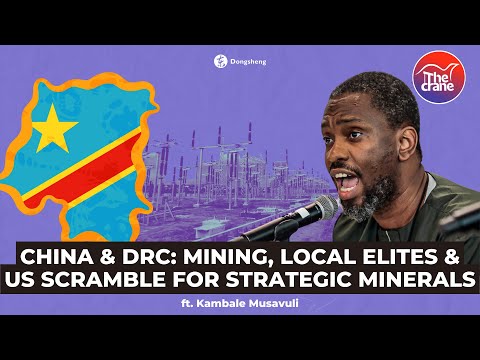
YouTube Video
Click to view this content.
Former prime minister of Japan Shinzo Abe was assassinated last week. He was a leader of the country’s ultra-conservative movement and one of Japan’s most powerful political figures. Some have even re

Interview covers a range of issues in post-WWII Japan up to the present day, with a focus on the development of Japan's right wing and the influence of the US in helping develop the Japanese right wing, such as by enabling Japanese war criminals to enter into politics. Also discusses the destruction of the Japanese labor movement/left wing via paid gangsters and talks about the high amount of CIA activity in Japan and the background of Shinzo Abe and his associated political party. Covers present-day international politics in regard to Japan as well as some internal political issues of Japan, and finally touches on the assassination of Abe.
For someone who wants an overview of Japan's recent history, I think this interview can serve as a good jumping off point for looking more deeply into the various topics they mention.

YouTube Video
Click to view this content.
I'm impressed you remained so calm.
Discussions like this are extremely frustrating. Atrocity propaganda can be created with virtually no effort, and it proliferates easily once set in to motion. Countering it with facts requires you to have seemingly encyclopedic knowledge of history and politics on hand at all times.
A (slightly edited) quote on war-time lies: "Man's habit of lying is not nearly so extraordinary as his amazing readiness to believe. It is, indeed, because of human credulity that lies flourish."
Anyway, here's a quote from a guy who worked for the CIA for 25 years. I hope it can help you if you get into another conversation like this.
I want to reveal to those who still believe in the myths of the CIA what it is and what it actually does. My explanation will not include the usual pap fed to us by Agency spokesmen. My view backed by 25 years of experience is, quite simply, that the CIA is the covert action arm of the Presidency. [...] The CIA is not an intelligence agency. In fact, it acts largely as an anti-intelligence agency, producing only that information wanted by policymakers to support their plans and suppressing information that does not support those plans. As the covert action arm of the President, the CIA uses disinformation, much of it aimed at the U.S. public, to mold opinion. It employs the gamut of disinformation techniques from forging documents to planting and discovering "communist” weapons caches. But the major weapon in its arsenal of disinformation is the "intelligence" it feeds to policymakers. Instead of gathering genuine intelligence that could serve as the basis for reasonable policies, the CIA often ends up distorting reality, creating out of whole cloth "intelligence" to justify policies that have already been decided upon. Policymakers then leak this "intelligence" to the media to deceive us all and gain our support. (Ralph W. McGehee, "Deadly Deceits: My 25 Years in the CIA", p. 15)
Aa shorter quote of his with the same essence: "The CIA is not now nor has it ever been a central intelligence agency. [...] Disinformation is a large part of its covert action responsibility, and the American people are the primary target audience of its lies." (Deadly Deceits, p. 192).
You may also find this useful: Former CIA Agent John Stockwell Talks about How the CIA Worked in Vietnam and Elsewhere - he talks about how the CIA gives false stories to reporters, some reporters know this and purposely publish false stories planted by the CIA and some don't know that they are planting CIA stories.
In my war, the Angola war, that I helped to manage, 1/3 of my staff was propaganda. [...] I had propagandists all over the world, principally in London, Kinshasa, and Zambia. We would take stories which we would write and put them in the Zambia Times, and then pulled them out and sent them to journalists on our payroll in Europe. But his cover story, you see, would be what he would've gotten from his stringer in Lusaka, who had gotten them from the Zambia Times. We had the complicity of the government of Zambia, Kenneth Kaunda if you will, to put these false stories into his newspapers. But after that point, the journalists, Reuters and AFP, the management was not witting of it. Now, our contact man in Europe was. And we pumped just dozens of stories about Cuban atrocities [...] We didn't know of one single atrocity committed by the Cubans, it was pure raw false propaganda to to create a an illusion of communists, you know, eating babies for breakfast and so forth, totally false propaganda.
More from him:
Another thing [the CIA does] is to disseminate propaganda to influence people's minds, and this is a major function of the CIA. And unfortunately, of course, it overlaps into the gathering of information. You have contact with a journalist, you will give him true stories, you'll get information from him, you'll also give him false stories. [...] You buy his confidence and set him up. We've seen this happen recently with Jack Anderson, for example, who has his intelligence sources, and he has also admitted that he's been set up by them, every fifth story just simply being false. You also work on their human vulnerabilities to recruit them, in a classic sense, to make them your agent, so that you can control what they do so you don't have to set them up. Sort of, you know, by putting one over on them so you can say, "Here, plant this one next Tuesday." [...] The Church Committee brought it out in 1975, and then Woodward and Bernstein put an article in Rolling Stone a couple of years later. Four hundred journalists cooperating with the CIA, including some of the biggest names in the business, to consciously introduce the stories into the press.
Good luck talking with people in the future about things like this. Often, there is not much hope in a conversation like this with a person who is not poised to listen. But on the off chance you have some favorable conversation conditions sometime, I hope these quotes can help.
> A bi-monthly podcast giving you a fresh look at the news, events, and debates around China-Africa relations from the perspective of two young(ish) Africans. Brought to you by the Dongsheng Collective.

YouTube Video
Click to view this content.
> Here, nearly everything is shared. There are two community electric cars - donated by the Erssons who no longer have a private car-, shared bicycles (and bike trailers), an extensive fruit orchard, berry and grape patches, and a considerable community garden space. Photovoltaics provide about two-thirds of the energy consumed by the complex. [...] Rents here are lower than the Portland average because the Erssons want Kailash to be accessible to all income levels. There’s a 300-person waitlist, but Ole hopes others will follow their example.
> "If you look at it from an economic perspective no business would want a complex landscape like this because it's way too much maintenance, but what you have to do is turn the maintenance over to the residents, and then they do it: they get joy; it's an antidepressant; it's a way of creating food; it's a way of creating community; so you have to do it in a certain way, but it's definitely a lot more work than the typical grass and shrub landscape for sure."

YouTube Video
Click to view this content.
cross-posted from: https://lemmygrad.ml/post/9204
> Additional footage on the [fort] they built and the attack upon it: https://www.youtube.com/watch?v=OAPC1wI08IM
작사: 백무산 작곡, 공연: 서대노예련(서울지역대학생노동해방예술인연합주비위원회) 1990년 노동해방문학 5월호에 실린 백무산 시인의 '꽃병을 만든다' 에 곡을 붙였습니다. 곡을 붙이고 공연을 한 서울지역대학생노동해방예술인연합주비위원회는 당시 사노맹(남한사회주의노동자동맹)의 유관조직이었습니다. 꽃병을 만든다 싸늘한 분노에 액체를 부어 꽃병을 만든다 이불솜 뜯어 울분을 틀어막아 꽃병을 만든다 억울함도 순종으로 다스리고 복받치던 서러움도 눈물로 씻었지만 이제는 못참아 이제 더는 못참아 더이상 맥없는 가슴앓이 않으리 당신을...
Title: 꽃병을 만든다
Lyrics: 싸늘한 분노에 액체를 부어 꽃병을 만든다 이불솜 뜯어 울분을 틀어막아 꽃병을 만든다 억울함도 순종으로 다스리고 복받치던 서러움도 눈물로 씻었지만 이제는 못참아 이제 더는 못참아 더이상 맥없는 가슴앓이 않으리 당신을 구하는 길이라면 싸늘한 분노에 액체를 부어 우리 울분도 서러움도 틀어막는다 분노가 날아가 화염을 뿜는 꽃병을 만든다 오랜 인내 가운데 터지는 분노의 파편 날아가 날아가 네놈들 가슴팍에 꽂혀 네놈들 가슴팍에 꽂혀 네놈들 아가리에 박혀